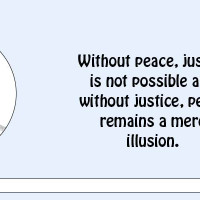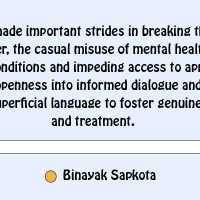- Thursday, 7 August 2025
Global Housing Crisis Demands Bold Action
We are living through a global housing crisis that is worsening by the day. Nearly 3 billion people lack access to adequate housing, secure land, and even the most basic services like water and sanitation. If left unaddressed, this crisis constitutes a humanitarian emergency. As 193 countries convene in Nairobi for the resumed second session of the United Nations Habitat Assembly, placing housing, land, and basic services at the heart of global priorities is no longer optional — it is essential. Governments and city leaders must make bold choices to fulfill access to adequate housing as a human right.
Numbers cannot fully capture the daily hardship endured by those without adequate housing. Over 1.1 billion people live in informal settlements and slums without secure tenure, safe water, or sanitation. Conflict and climate-induced displacement are pushing millions further into precarious living conditions. In rapidly urbanizing Africa, where 62 per cent of urban dwellings are informal and 30 per cent are overcrowded, the consequences of inaction are stark. By 2024, the housing deficit in Africa had reached at least 70 million units, with nearly 80 per cent of that deficit concentrated in sub-Saharan Africa. At an estimated average cost of USD 20,000 per unit, addressing the current need would require close to USD 1.4 trillion in investment.
Rapid urbanisation
In Asia-Pacific, the population is projected to grow by another 1 billion over the next 25 years. Cities, already home to over 2.3 billion people, are experiencing rapid urbanisation that outpaces housing and infrastructure development. More than 500 million people lack access to basic water supply, and over 1 billion to adequate sanitation. Across both high- and low-income countries, housing costs remain high, and vulnerability to climate risks is increasing.
Adequate housing means more than walls and a roof —it provides safety, dignity, and opportunity. Secure tenure, clean water, sanitation, and access to energy are foundational to health, education, and economic mobility. UN-Habitat’s experience offers a roadmap. In Iraq and Yemen, we have supported post-conflict housing and land rights. In Kenya, Uganda, and Burkina Faso, we have upgraded informal settlements and slums. This work must be scaled up as a central pillar of national development strategies. It is not only socially just but also economically sound.
Housing contributes up to 18 per cent of GDP and 10 per cent of jobs in emerging markets. It connects to critical sectors like construction, finance, technology, and basic services —generating local development and resilient communities. A study by IIED for Habitat for Humanity found that access to adequate housing in informal settlements could raise national income by up to 10.5 per cent and prevent more than 730,000 deaths annually — an impact greater than eradicating malaria.
Governments must reclaim leadership in shaping housing systems for the public good. This requires moving beyond short-term market corrections to long-term investment in housing as public infrastructure. Solutions must be diverse and adapted to local contexts — public rental housing, social housing, cooperatives, community-led models, slum upgrading, and incremental housing. The best models are those built on social, cultural, and institutional strengths.
Strong governance is essential. National governments set clear policies and regulatory frameworks, while local and regional governments — closer to communities and the people they serve — are best positioned to implement housing solutions, coordinate land use, and engage civil society. Strengthening the capacity and financing of local authorities is critical to ensure housing systems meet community needs and support inclusive urban development.
Building coalitions at all levels is equally vital. Civil society, academia, social movements, and the private sector all have critical roles to play. Partnerships help address the complexity of housing by combining expertise, resources, and perspectives. Housing is already rising to the center of political agendas in regions around the world and showing growing momentum for systemic change.
From Vienna’s use of land banking and rent control to maintain housing as a public service, to Thailand’s Community Organisations Development Institute (CODI) promoting collective savings and participatory planning — successful models already exist. Uruguay’s Ayuda Mutua and Brazil’s “Entidades” programme empower cooperatives to build homes with state support. In Puerto Rico, the Cano Martín Peña Community Land Trust secured land rights for thousands in a flood-prone district, demonstrating how community ownership drives equity and resilience.
Anticipating urban growth through inclusive planning is key. Ethiopia’s integration of peri-urban areas into expansion strategies has curbed unplanned sprawl and created more connected, inclusive neighborhoods. To maximise social, environmental, and economic benefits, financial strategies must align with urban regulations. Housing — comprising around 60 per cent of the built environment — shapes cities and drives emissions and resource use. Integrating finance and policy is essential for sustainable development, with tools such as subsidies, investment programmes, and innovative financing mechanisms supporting energy efficiency, resilience, and affordability.
Governments must also manage land more efficiently — preserving its economic, ecological, and social functions. Compact, well-planned urban extensions can reduce sprawl and protect productive land and fragile ecosystems, especially in peri-urban areas. To ensure access to adequate housing for all, especially low-income and marginalised groups, governments must mobilise both international and domestic resources. This includes strategic public finance—using subsidies, tax reliefs, long-term loans, and incentives — and better leveraging domestic savings, private investments, and land-based finance mechanisms.
Skewed investment
With international housing finance heavily skewed — higher-income regions receive 22 times more funding per person in poverty than sub-Saharan Africa — there is an urgent need to close this gap. Enhancing property taxation, land value capture, and digital land systems, combined with smart local revenue collection, can unlock significant domestic financing.
Investment in stable, adequate, and affordable housing delivers major socioeconomic returns — from improved health and education to reduced spending on justice and social protection. The message is clear: housing can no longer be treated as a speculative investment. It is a human right and a foundation of sustainable development. We must see housing as a public good, anchored in sound policy and inclusive governance. The cost of inaction is growing inequality and instability. Solutions exist. It’s time to scale them up.
(The author is Under-Secretary-General and Executive Director of the United Nations Human Settlements Programme (UN-Habitat)







-square-thumb.jpg)









